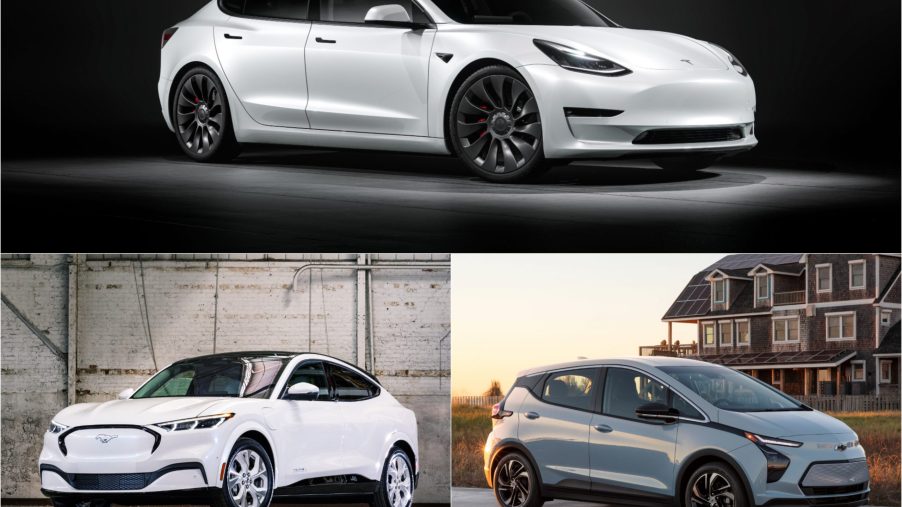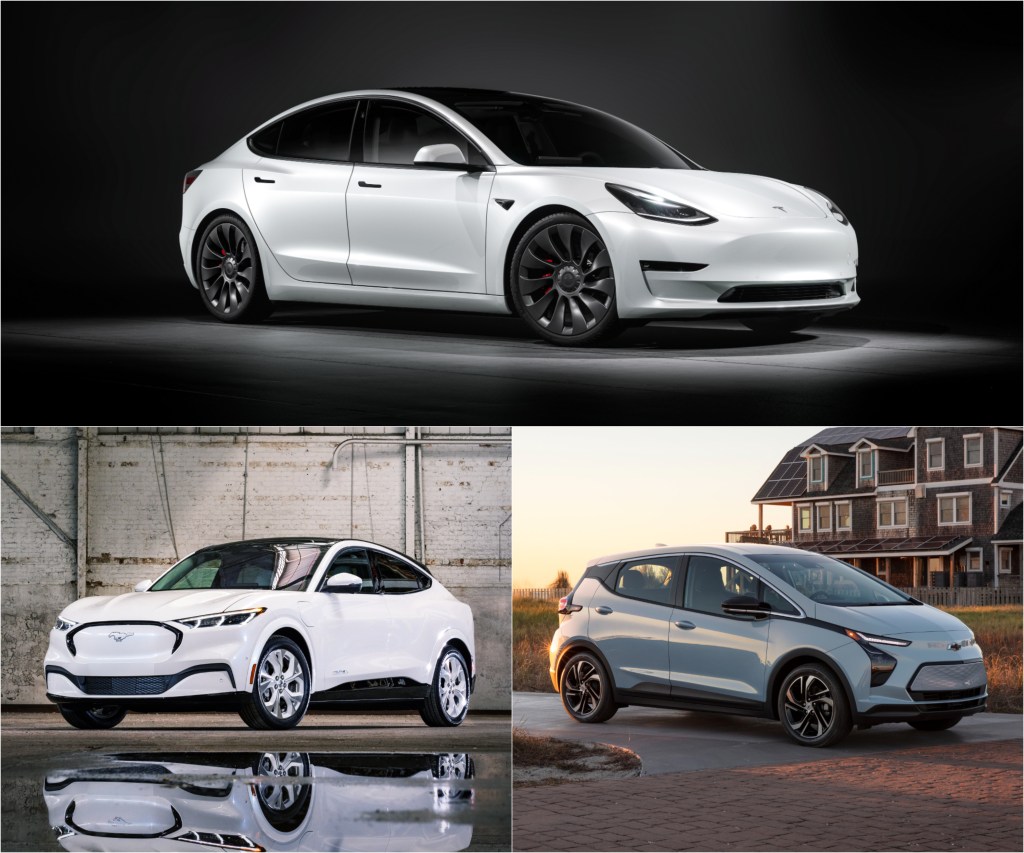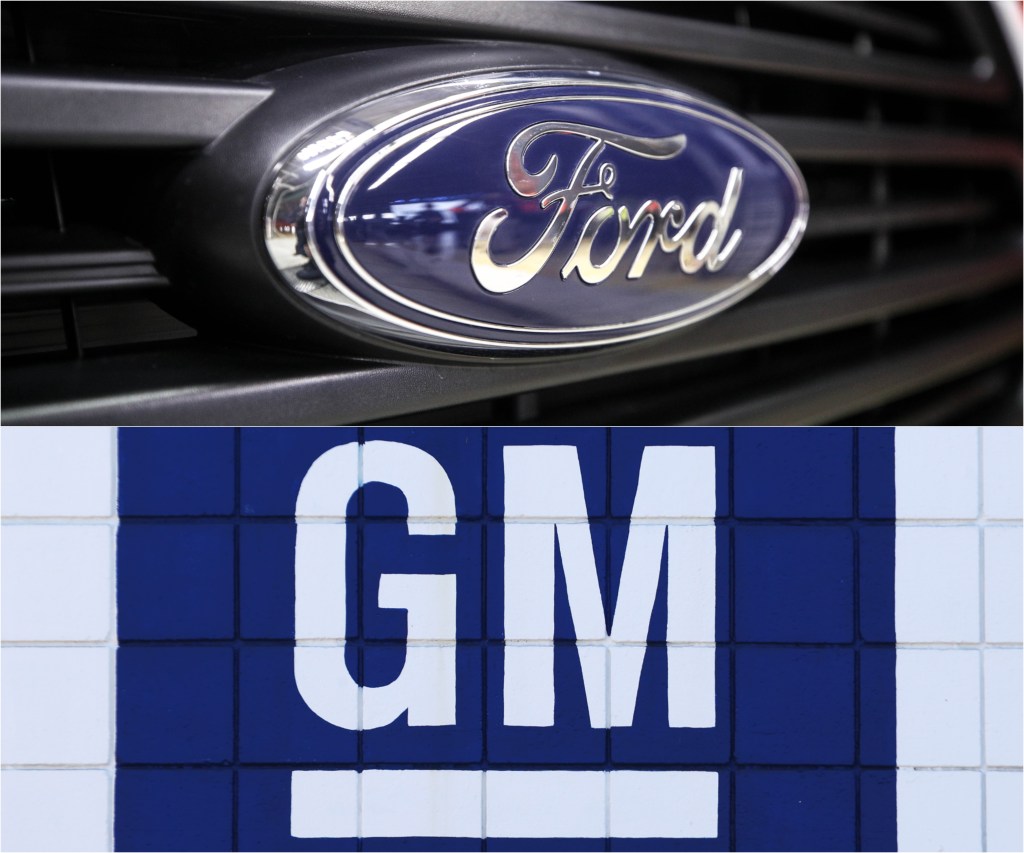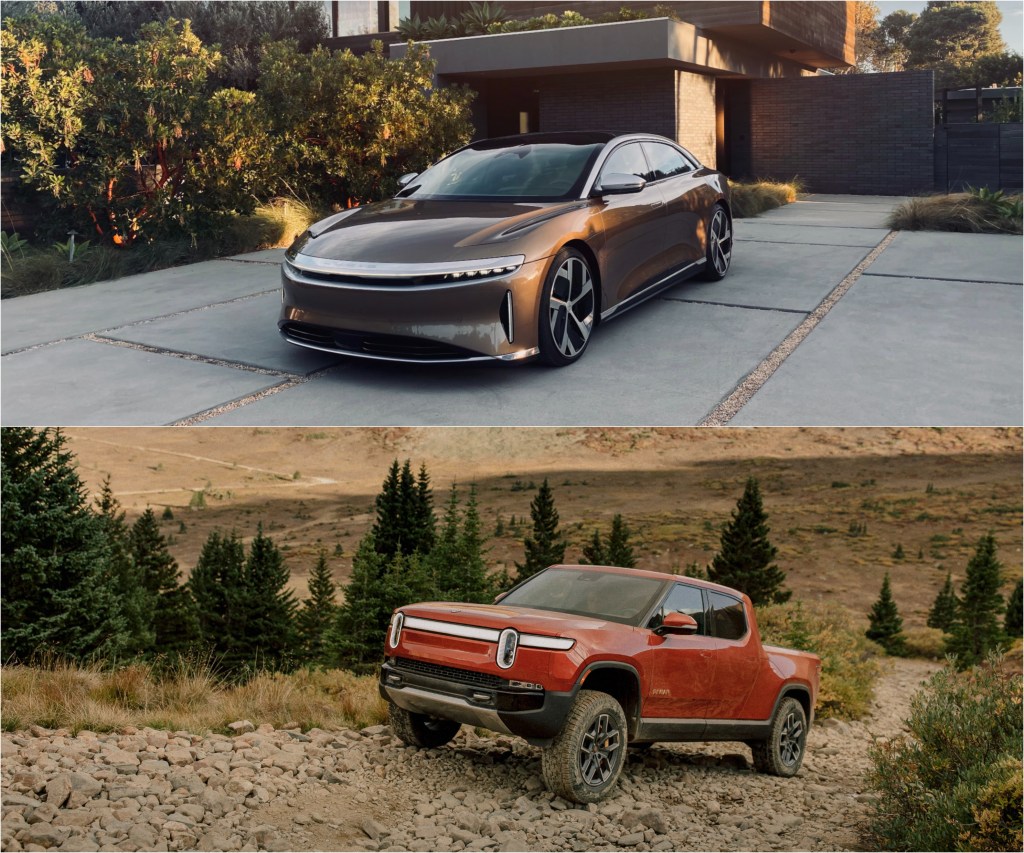
Will Ford or GM Ever Beat Tesla in the EV Game? Experts Don’t Think So
It’s clear that Tesla got a head start on every major automaker when it comes to electric vehicles. To date, they’re the sole company that only produces electric vehicles. That forces major automakers like Ford and GM to play catchup. But will these two American giants ever be able to compete with Tesla?

How do Tesla’s electric cars compare to EVs from Ford and Chevy?
We’ll start by stating the facts about each of these major automakers and their electric car lineups. For starters, Tesla has four EV models available, while Ford only has the Mach-E along with the upcoming F-150 Lightning. Meanwhile, Chevy has the Bolt, which in fairness, did beat Tesla to the punch when it comes to consumer electric cars. However, Chevy Bolts catch fire surprisingly often, and the company has admitted that production was rushed just to compete with Tesla.
But for the moment, let’s put a Tesla Model 3, a Ford Mach-E, and a Chevy Bolt (that isn’t on fire) in the same room. It’s hard to compare the cars as to which is the best because, in truth, these electric cars serve various different purposes. The Chevy Bolt is an affordable electric hatchback, starting at $31,000, while the Mach-E is a spacious SUV but starts at a hefty $42,895. The Tesla Model 3 falls in the middle, with room for 5 while starting at $38,190 after electric-car tax credits.
In truth, however, experts don’t see a problem with the electric cars Ford or GM are producing. The issue lies in the companies, and exactly how they were formed.
Ford and Chevy are gas-powered companies

Cathie Wood, an expert in managing money, has been watching gasoline car companies like Ford and GM adapt to the electrification of the world. She spoke to Marketwatch, explaining that Ford and GM “were born in the industrial, gas-powered age” and now have to change tracks. Meanwhile, Tesla built period-correct electric cars right from the start.
You can see exactly how much people are gravitating toward Tesla by looking at the share prices for these three companies. As of today’s date, a share of Ford is 19.77, and GM sits $63.49 per share. Meanwhile, Tesla is at $1,093 per share, and share prices are getting ready to spike. That’s because they’re already producing electric cars for the future and are well ahead of the game.
What’s more, Tesla may be beating more than just gas-powered automakers. Other electric car companies just hopping on the bandwagon may struggle to keep up as Tesla moves forward.
Will other electric car companies be able to keep up?

Electric car companies like Lucid and Rivian are popping up left and right. But do they have the means to overthrow Tesla, or even compete? Let’s look at exactly how these electric car companies form.
Because EV technology is such a new concept, electric car manufacturers have to start with a top-of-the-line model. That way, they can stick a hefty price tag on it and make a significant profit, which contributes to the research and development of consumer models. In case you forgot, Tesla did this with the original Tesla Roadster, which went for $80,000 to $120,000 back in 2006.
Lucid is doing the same thing with the Lucid Air Dream, and all of their other Air models. The same goes for Rivian with the R1S and R1T. They’re expensive, top trim models that’ll pave the way for cheaper electric cars down the line. But since EVs haven’t been adopted yet, low volume high margin electric cars are the safest bet.
But companies like Ford and GM are incredibly behind, because, unlike Rivian, Lucid, and Tesla, they don’t have the same electric car expertise. Even if Tesla doesn’t know everything there is to know about EVs yet, gasoline car companies like GM and Ford know even less about electric cars.


